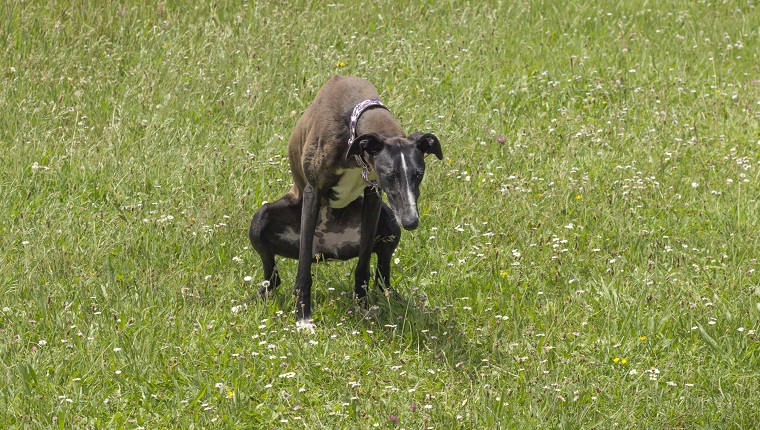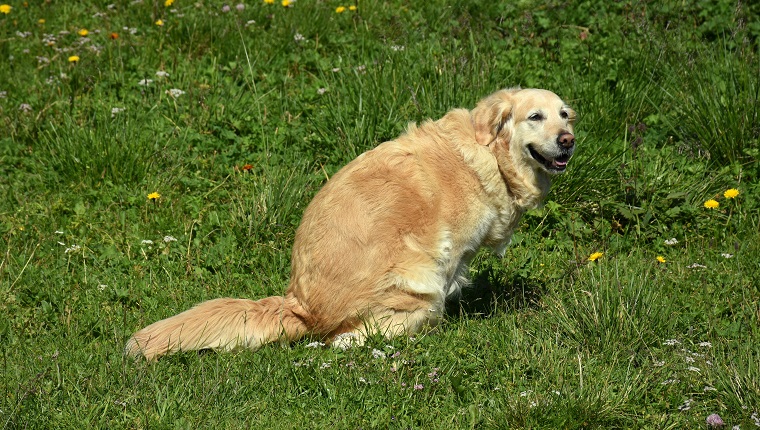Dyschezia in dogs is a medical condition that causes a dog to experience difficulties defecating. It can cause blood and mucus to appear in their stools.
The condition is similar to constipation in humans.
If you see signs that your dog might be suffering from difficulties while defecating, then you must consult your veterinarian for a proper diagnosis and advice. Here’s what you should know about the symptoms, causes, and treatments of dyschezia in dogs.
Symptoms Of Dyschezia In Dogs
Dyschezia in dogs can cause a range of symptoms, most of which can be noticed while your dog is defecating.
Some of the most commonly seen symptoms include:
- Straining while defecating
- Whimpering while defecating
- Blood in the stool
- Not being able to defecate (despite repeated attempts)
- Mucus present in the stool
Causes Of Dyschezia In Dogs

The cause of dyschezia in dogs is often related to diseases of the anus or rectum.
Some of the most common causes include:
- Presence of foreign bodies
- Trauma
- Rectal polyps
- Parasites
- Constipation
- Inflammatory bowel diseases
- Blocked anus (by matted hair or feces)
- Hernias
- Fractured pelvis
- Neoplasia
- Cystitis
Veterinary Treatments
If you suspect that your dog is developing dyschezia, then your veterinarian will want to ask a series of detailed questions about your dog’s medical history and any relevant symptoms that you may have noticed.
The vet will also carry out blood and urine tests, and in some cases, the use of x-rays and imaging techniques can help to examine the abdominal area to check for any issues.
When it comes to treatment, vets may suggest a number of options depending on the likely cause of the condition. If an infection is involved, they may prescribe a course of antibiotics.
As ever, if your vet prescribes your dog any medicine, then it is vital that you stick to the precise dosage and frequency instructions and complete the full course of medication.
Other potential treatments include balloon dilation, which can help to unblock feces, or laxatives if your vet determines that they are needed. Additionally, your vet might recommend certain dietary changes to help your dog recover.
Has your dog developed dyschezia? Did your vet recommend any diet changes? Tell us all about it in the comments below.









